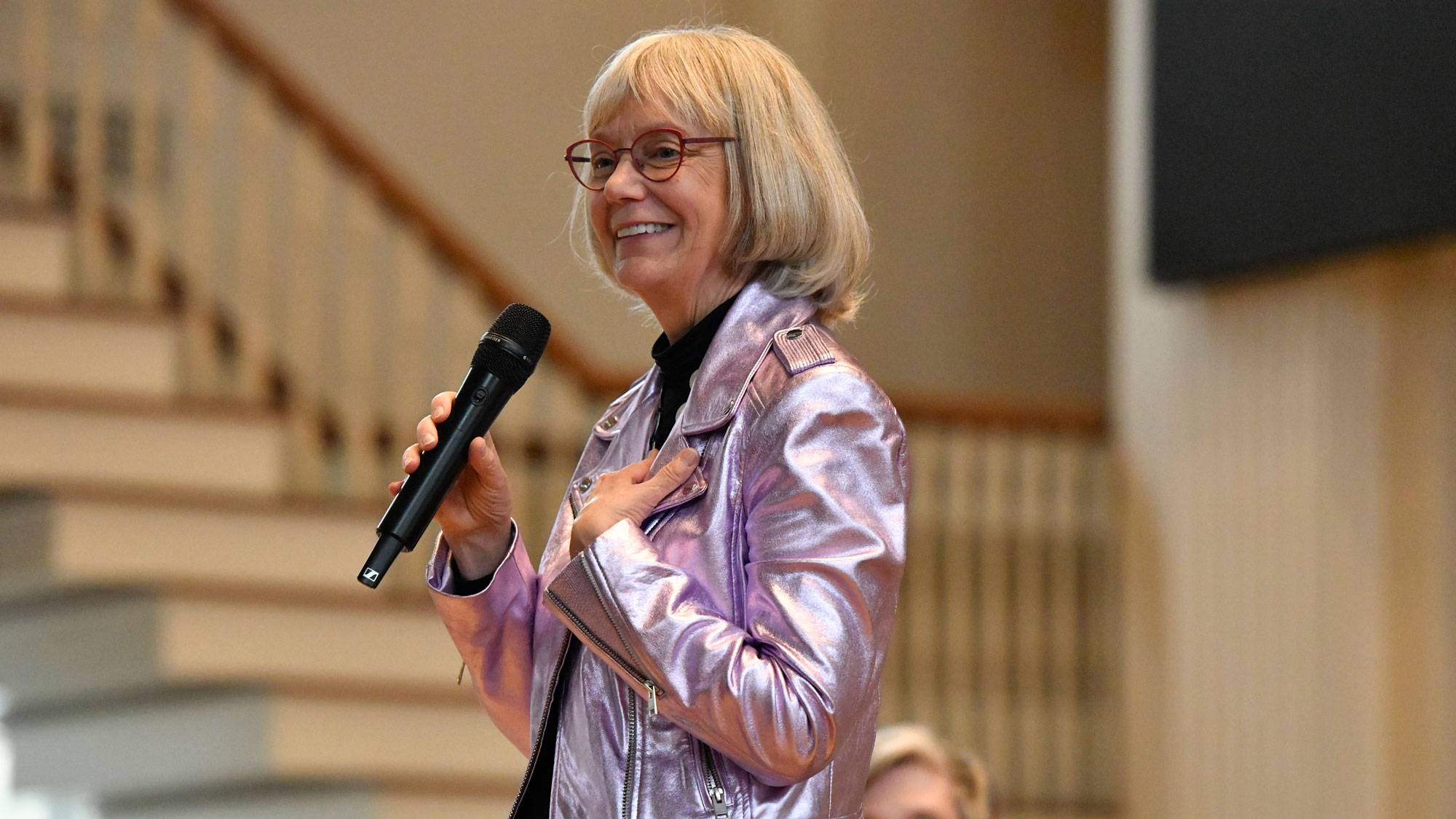Having been diagnosed with Alzheimer’s disease five years ago, former Colgate University president Rebecca Chopp has embraced the visual arts and dance as part of her “prescription” to live life to the fullest.
She spoke about her experience Thursday night in Memorial Chapel during a panel discussion titled “Still Learning” with Ellen Percy Kraly, professor of geography and environmental studies emerita, and Doug Johnson, the William R. Kenan Jr. Professor of psychological and brain sciences. The event kicked off the University’s Arts, Creativity, and Innovation Weekend.
“It was at Colgate where I began to realize how the arts, science, and athletics come together in the phrase we always use, ‘the spirit that is Colgate’ — and it’s about being a full person, a whole person, and how all of this can combine into making a life worth living,” Chopp said.
She was in the prime of her life when she was diagnosed, explained Chopp, who was chancellor of the University of Denver at the time. The first neurologist she saw gave Chopp a grim prognosis: that she wouldn’t even be able to button her shirt in a few years. But, as the liberal arts taught her, “if you didn’t like the answer you got, ask the question again; ask it deeper,” Chopp recalled. When she asked a second neurologist for an opinion, that doctor said, “There’s so much more living you can do.”
“She told me I could live with joy, and she gave me a prescription of how to do that,” Chopp said. “I turned her prescription into gifts.” She’s written about those gifts in her book, Still Me: Accepting Alzheimer’s Without Losing Yourself, and she shared them with the Colgate audience.
“What’s good for the brain is good for the body,” emphasized Chopp, who touted the benefits of creativity, diet, exercise, sleep, and social engagement. She has made life changes that include eating the MIND diet, painting, and combining social activities with intellectual opportunities.
As we age, we need to “exercise our ability to solve problems and think creatively,” agreed Johnson, who is a member of the Robert Hung Ngai Ho Mind, Brain, and Behavior Initiative (MBBI) advisory committee. Through the MBBI, Colgate faculty and staff members are looking at the intersection of brain science and the arts.
Kraly pointed out that, as this weekend centers around Middle Campus, the panel discussion “resonates with what our aspirations are for our students.” She said, “They’re given opportunities to make good choices, interesting choices about enriching themselves and bringing joy to their lives and also their community.”

